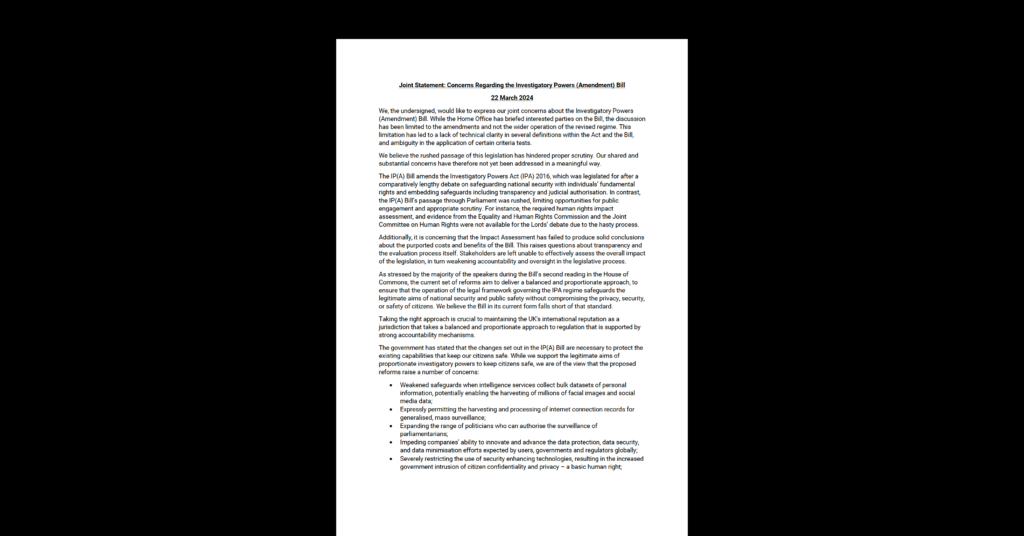European Policy, Open Internet
Civil Liberties Parliamentary Committee Opposes Mandatory Censorship Filter
Occasionally the discussions around the European Commission’s proposed Copyright in the Digital Single Market (DSM) Directive shed a ray of sunshine and reason. On 20 November, the Civil Liberties (LIBE) Committee of the European Parliament adopted its Opinion on the DSM, focusing specifically on the upload filtering provision in Article 13, and recommending that the provision be narrowed to remove content monitoring obligations. As drafted, Article 13 would force internet intermediaries to use content identification technology to prevent users from uploading unlicensed copyrighted content. We have warned on numerous occasions against the potential impact on Internet users’ fundamental rights, the latest in an open letter we signed with more than 50 human rights, media freedom, and press organisations.
While we continue to believe that Article 13 should be deleted altogether, the Compromise Amendments (CAs) put forward by rapporteur MEP Michal Boni address the most problematic elements of the provision.
The adopted CAs, which essentially mirror MEP Boni’s original draft Opinion, narrow the scope of Article 13, to minimise potential unintended consequences on both users and the internet ecosystem as a whole. Importantly, the text does away with the obligation for online platforms to implement content recognition technologies. This is crucial not only for safeguarding fundamental rights, but as we have continuously argued, mandating filtering technology on a massive number of platforms, many of them start-ups and SMEs, would severely hamper European innovation and entrepreneurship. The costs of filtering tools are much higher than what the Commission Vice President Andrus Ansip has previously suggested, and prohibitive for most start-ups.
Article 13 “will mostly benefit the corporate ‘creative’ businesses who signup performers and have the upper hand with respect to how they should be paid in return
Moreover, the text adopted in LIBE states that where online platforms need to take measures to ensure the functioning of licensing agreements concluded with rightholders, “[t]he implementation of such agreements shall respect the fundamental rights of users and shall not impose a general obligation on information society service providers to monitor the information which they transmit or store […]”. By eliminating the obligation to ‘prevent the availability’ of certain content, LIBE is highlighting the importance of upholding the principles of the E-Commerce Directive, and particularly the Article 15 prohibition on general monitoring obligations. In the same vein, we welcome the fact that the LIBE Opinion recognises the importance of the intermediary liability protections enshrined in Article 14 of the e-Commerce Directive, by stating that licensing agreements’ between online service providers and rightholders should only be concluded where the liability exemptions of the e-Commerce Directive do not apply.
A new useful amendment adopted, and suggested by MEP Cecilia Wikström, puts emphasis on the need for users to “have access to effective and expeditious redress and complaint mechanisms”. Availability of judicial redress for the potential unlawful actions against users’ content (e.g. where exceptions to copyright infringement apply), is a highly welcome addition.
As we have been reminded many times by the Commission, Article 13 is based on the so-called ‘value gap’, or the idea that that video hosting sites displace revenues for copyright owners. Yet, a study commissioned by the Commission a couple years back (but later withheld due to the incompatibility of its results with the Commission’s political line), found no evidence of such displacement. It is important to note that Article 13 as the ‘solution’ to the ‘value gap’ problem would not in fact address the legitimate concern of fair remuneration to creators. As rightly pointed out by the ‘Fair Internet Coalition’ in a recent open letter, Article 13 “will mostly benefit the corporate ‘creative’ businesses who signup performers and have the upper hand with respect to how they should be paid in return”. Article 13 is essentially an attempt to settle commercial issues between corporations. These commercial disputes do not justify broad legislation with dramatic consequence for the internet, and thus for freedom of speech. MEP Boni’s Opinion helps avoid such unintended consequences.
With the Legal Affairs (JURI) committee having the final vote soon, we hope the recommendations of the LIBE Opinion are taken into consideration and adopted. They help in safeguarding citizen’s fundamental rights and are very much aligned with the comments of the Internal Market (IMCO) committee.


